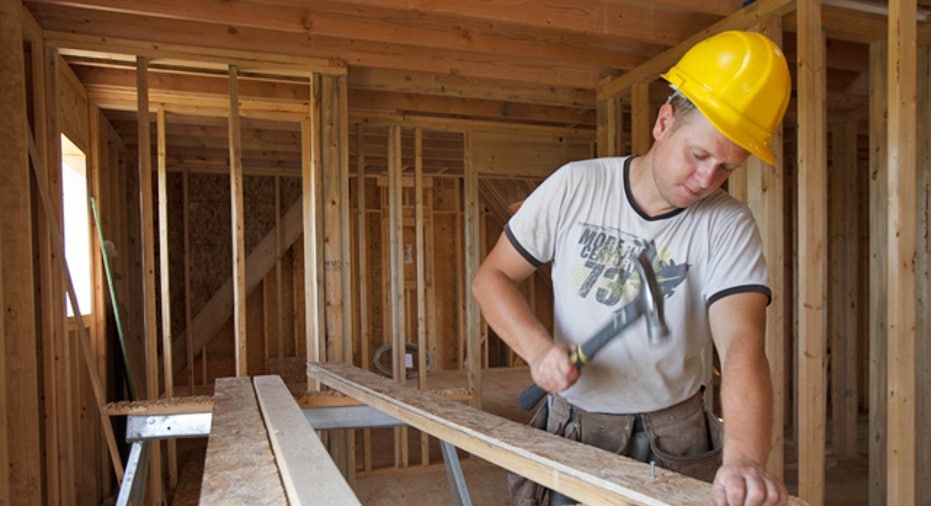Contractors Seek Better Climate for Small Business

The following is an op-ed written by Dan Brodbeck, national chairman of the Associated Builders and Contractors trade association.
As Associated Builders and Contractors (ABC) members celebrate National Small Business Week, this week also provides an opportunity for the construction industry to take a look at important issues that continue to hold back our growth and development.
At the center of ABC’s core values are the commitment to economic freedom and the desire to help our nearly 21,000 members develop people, win work and deliver that work safely, ethically and profitably for the betterment of the communities in which they work.
Unfortunately, winning work and producing it profitably is becoming increasingly difficult. The construction industry continues to pay the highest effective tax rate of any industry, a disparity that has only been made worse by this year’s tax hikes and new surtaxes on wages and income stemming from the health-care law.
It should come as no surprise then that the majority of our members say their top tax priority is lowering their effective tax burden. While the U.S. corporate tax rate remains the highest in the world, so-called "pass-through" businesses in construction and other key industries actually face a substantially higher marginal rate than even the Fortune 500. Moreover, these same companies, overwhelmingly structured as S-corporations, pay an average effective rate nearly double that of a typical C corp. Our members, the majority of whom are small businesses, are proud to build our communities, but they need a tax code that provides for fair and equitable treatment regardless of business size, structure or sector.
In addition to the tax disparity, the Obama administration’s aggressive regulatory agenda adds layers of uncertainty and burdensome requirements that make it more difficult for our members to grow their business. Particularly troubling has been the transformation of the National Labor Relations Board (NLRB) from a neutral mediator of labor law disputes to a cheerleader for pro-union policies.
The added confusion and distraction of this activist agenda, combined with the $112 billion in net new regulatory costs limits our members’ ability and willingness to confidently bid on work and invest in their business, both of which create jobs. This burden is felt most acutely by small businesses with scarce resources that, as a result, pay 36% more to comply with regulations than big businesses.
While this increase in red tape may be good for lawyers and regulatory experts, it is not good for the construction industry. Our members understand the value of standards and regulations, but too often these rules are carelessly developed without consideration of, or input from, the business community. A more thorough regulatory process that considers the impact of proposed rules on the affected industries and small businesses would go a long way toward minimizing the economic burdens of regulations.
Perhaps the best example of this is the unworkable health-care law that strips contractors of the flexibility they need to manage a fluctuating workforce.
The health-care law was hastily put together and rammed through Congress, and has created confusion and uncertainty throughout our industry. The law has made it more difficult for the nation’s contractors to invest, plan for the future and create jobs. Further, the resulting increased costs will threaten our member companies’ ability to contain coverage costs for their employees and will force others to drop coverage altogether.
Particularly burdensome, not just to our industry but to small businesses across the board, is the law’s Health Insurance Tax or HIT. This tax assesses a fee on health insurance companies, which will be passed along to consumers in the small business and self-employed marketplace that is expected to total $7 billion in 2014 and more than $100 billion in its first 10 years.
When you add together the country’s highest effective tax rates, the constantly changing regulatory environment and the unworkable health-care law, it is easy to see room for improvement as our economy continues to rebound.
The construction industry is largely reliant on a healthy economy. While this spring has produced some promising signs, common-sense fixes to the business environment would produce a healthier economy, more work for our members and more construction jobs.
Dan Brodbeck is the 2014 Associated Builders and Contractors national chairman and president and CEO of Compass Partners, LLC in Brentwood, Tenn.
Associated Builders and Contractors (ABC) is a national construction industry trade association representing nearly 21,000 chapter members. Visit us at www.abc.org.



















